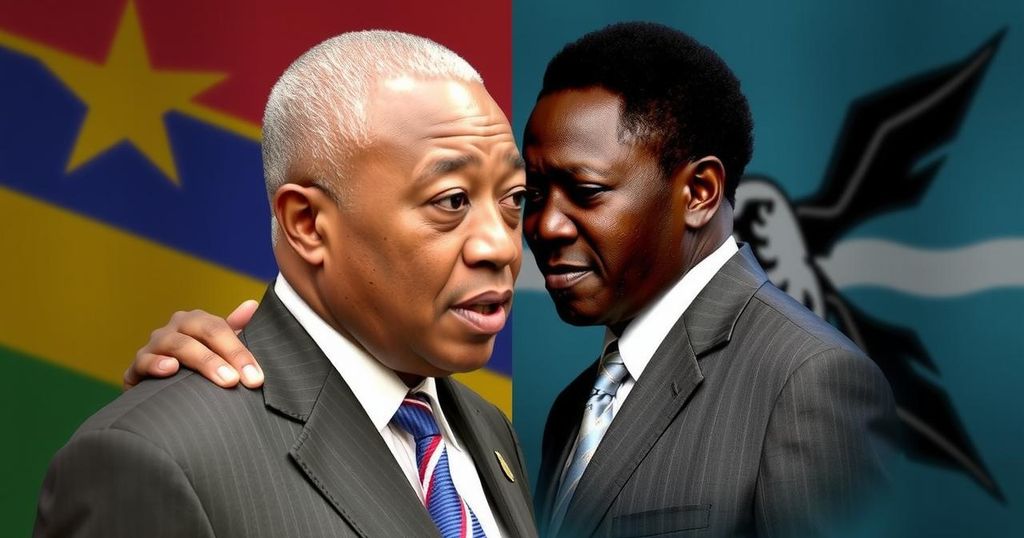The Democratic Republic of Congo and Rwanda have withdrawn from peace talks aimed at resolving the M23 conflict, exacerbating the humanitarian crisis in the region. Suspicions concerning Rwanda’s connections to the M23 and ongoing tensions rooted in ethnic divisions hinder progress. Effective mediation and a commitment to dialogue are essential for restoring peace and stability.
On December 15th, it was reported that both the Democratic Republic of Congo (DRC) and Rwanda had withdrew from planned peace talks in Angola, intended to address the persistent M23 rebel conflict. The DRC, located in Central Africa, has been grappling with the M23 rebel group since its formation in 2012. This militia, primarily composed of Tutsi defectors from the Congolese army, has amplified a significant human rights crisis, exacerbating violence against civilians amidst a backdrop of historical ethnic tensions originating from the Rwandan Genocide in 1994.
Rwanda’s call for dialogue between the DRC and the M23 rebels has heightened suspicions within the DRC regarding Rwanda’s involvement with the militia. This concern is motivated by Rwanda’s history of insecurity, particularly from Hutu rebel groups operating in eastern Congo. Congolese spokesman Giscard Kusema stated, “Rwandans have set a precondition for the signing of an agreement that the Congo hold a direct dialogue with the M23.” This offered dialogue has not been met favorably by the Congolese government, leading to claims from international entities such as the UN and African Union regarding Rwanda’s alleged involvement in the conflict, including accusations of troop presence on Congolese soil.
The unresolved tensions have resulted in detrimental humanitarian impacts on the civilian population, with significant deficits in education and healthcare services. In light of these challenges, peace negotiations must be prioritized to prevent further loss of life and destruction. It is imperative to foster a mutual understanding between the opposing parties, considering the deeply rooted ethnic dynamics affecting security in the region. Additionally, the involvement of international bodies could facilitate the creation of an effective mediation framework to support conflict resolution.
The withdrawal from peace talks in Angola marks a significant setback in efforts to mitigate the ongoing tensions and violence associated with the M23 conflict. Without sustained dialogue and resolution initiatives, the humanitarian crisis is likely to escalate further, perpetuating instability in the region. While finding resolution may indeed be complex, it is essential to rekindle the prospects for peace to enable a hopeful future for the affected communities.
The Democratic Republic of Congo and Rwanda have historically had a tumultuous relationship, shaped significantly by the M23 conflict that emerged from complex ethnic tensions arising from the Rwandan Genocide. The M23, which began in 2012, has gained notoriety as a destructive militia primarily composed of Tutsi defectors from the Congolese military. This situation has aggravated humanitarian crises in the region, leading to severe consequences for civilians, including the recruitment of child soldiers and attacks on non-combatants. Recent events surrounding proposed peace talks have underscored the ongoing distrust between the two nations, complicating efforts at conflict resolution amid allegations of Rwanda’s military involvement in the DRC.
The current stalemate in peace discussions between the Democratic Republic of Congo and Rwanda poses a significant barrier to resolving the M23 conflict. Deep-seated mistrust, exacerbated by accusations of troop presence and continued violence, undermines any diplomatic progress. Moving forward, there is an urgent necessity for renewed commitment to dialogue, alongside robust international mediation, to restore stability, address humanitarian needs, and foster a sustainable path to peace in the region.
Original Source: theowp.org






